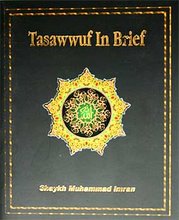Allah Most High says in the Noble Qur'an:
'...and man was created weak.' (Qur'an 4:28)
Man is weak in terms of opposing his desires and remaining steadfast upon the obedience of Allah Most High. Anas ibn Malik (Allah be pleased with him) reported that the Prophet Muhammad (Allah bless him and give him peace) said:
'The children of Adam are all profuse wrongdoers, but the best of profuse wrongdoers are those who repent.' (Ibn Majah, Tirmidhi)
One wisdom behind man being weak is so that he may invoke the vast mercy of Allah Most High. There is virtually nothing more beloved to Allah Most High than when His servant repents in all sincerity to Him so that He may forgive him. Allah has set out countless 'excuses' to forgive the wrongs of His servants; following are a few examples from the sayings of the Messenger of Allah (Allah bless him and give him peace):
'Whoever performs ablution, and perfects the ablution, his sins leave from his body to the extent that even from beneath his nails.' (Bukhari, Muslim)
'The five prayers, jumu'ah to jumu'ah, Ramadan to Ramadan, are expiators for those [sins committed] in between if the enormities are avoided.' (Muslim)
'No strain, illness, worry, grief, pain, afflicts a Muslim, to the extent that even a thorn that pricks him- except that Allah removes his sins as a result of it.' (Bukhari, Muslim)
'Whoever fasts in Ramadan with Faith, anticipating reward, his past sins are forgiven. Whoever stands in prayer in Ramadan with Faith, anticipating reward, his past sins are forgiven. Whoever stands in prayer in Laylat al-Qadr with Faith, anticipating reward, his past sins are forgiven.' (Bukhari, Muslim)
'Whoever performs the pilgrimage for Allah and does not behave obscenely nor commits sin returns [free from sin] like the day his mother gave birth to him.' (Bukhari, Muslim)
These are just a few examples of the mercy of Allah Most High seeking out an excuse. Yes, for the enormities one commits one must repent with remorse to Allah and resolve never to commit that sin again, as well as fulfil any rights of anyone that have been neglected.
The Blessed days of Dhu 'l-Hijjah
These blessed ten days of Dhu 'l-Hijjah are another such occasion of the manifestation of the mercy of Allah Most High. Abu Hurairah (Allah be pleased with him) reported that the Messenger (Allah bless him and give him peace) said:
'There are no days Allah loves to be worshipped in more than the ten of Dhu 'l-Hijjah; the fasting of each day amounts to the fasting of a year and standing in prayer in each of its nights amounts to standing in prayer in Laylat al-Qadr.' (Tirmidhi)
These days should be spent in:
1) Fasting (See above hadith)
2) Standing in prayer at night (See above hadith)
3) Glorifying Allah (tasbeeh: saying Subhan Allah), expressing the greatness of Allah (takbeer: saying Allahu Akbar), proclaiming His oneness (tahleel: saying La Ilaha Illa Allah), and praising Him (tahmeed: saying Alhamdu lillah).
Sayyiduna Abd Allah ibn Umar reported that the Prophet (Allah bless him and give him peace) said:
'There are no days in which actions are more valued or more beloved to Allah than in the ten days [of Dhu 'l-Hijjah]; thus, during these express tasbeeh, tahmeed, tahleel, and takbeer in abundance.' (Tabarani in al-Mu'jam al-Kabeer)
4) Sacrificing an animal (on the Day of Sacrifice)
Sayyidah A'ishah (Allah be pleased with her) reported that Allah's Messenger (Allah bless him and give him peace) said:
'On the Day of Sacrifice, the son of Adam carries out no action more beloved to Allah than shedding the blood [of a sacrificial animal]...' (Tirmidhi)
It has also been reported that a persons sins are forgiven when the first drop of the animal's blood falls to the ground (Bazzaar)
Allah Most High give us the ability to value these days.




No comments:
Post a Comment